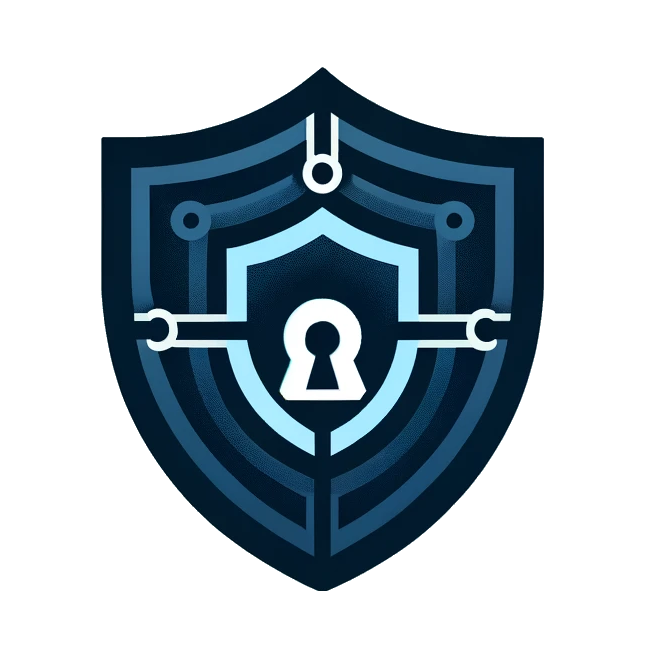Why You Should Avoid Oversharing Personal Details Online
Avoid oversharing personal details online, as it can make you highly vulnerable to identity theft and various forms of cybercrime. Seemingly innocent information, such as your full name, date of birth, address, or even minor details like your pet’s name or favorite color, can be pieced together by attackers to impersonate you, gain access to your accounts, or steal your identity. Cybercriminals often use these personal tidbits to answer security questions or bypass authentication systems, making it easier for them to infiltrate your digital life.
To protect your privacy and enhance your security, it’s important to practice caution by limiting what you share online and regularly reviewing your social media profiles and online accounts. By taking steps to avoid oversharing, you reduce the risk of becoming a target for cybercriminals and maintain greater control over your personal information. Being mindful of the information you disclose is a simple yet effective strategy to safeguard your identity and prevent malicious attacks.
What is Identity Theft?
Identity theft occurs when someone uses your personal information—such as your name, Social Security number, or financial details—without your permission to commit fraud or other crimes. This can include:
- Opening bank accounts or credit cards in your name.
- Accessing your existing accounts.
- Filing fraudulent tax returns.
- Conducting illegal activities using your identity.
How Oversharing Leads to Identity Theft
- Social Engineering:
- Attackers use personal information shared online to craft convincing phishing emails or phone calls to trick you into providing more sensitive data.
- Password Guessing:
- Many people use personal details, such as a pet’s name, birthdate, or favorite sports team, as part of their passwords. Oversharing this information can make it easier for attackers to guess.
- Answering Security Questions:
- Details like your mother’s maiden name, high school name, or first car are often used as security question answers. Sharing these on social media makes it easier for attackers to bypass account security.
- Data Aggregation:
- Scammers piece together bits of information from various sources (social media, public records, forums) to create a detailed profile of you.
- Targeting Vulnerable Accounts:
- Sharing your current location, frequent travel plans, or lifestyle habits can alert thieves to opportunities for financial fraud or physical theft.
Common Ways People Overshare Online
- Social Media Posts:
- Posting your full name, birthdate, or family member details in profiles or updates.
- Sharing vacation plans or photos in real-time, which signals when you’re away from home.
- Public Profiles:
- Leaving sensitive information visible on LinkedIn, Facebook, or Instagram, such as your phone number, address, or employer.
- Quizzes and Challenges:
- Participating in online quizzes that ask for personal details like your high school mascot, childhood pet, or favorite teacher. These details can mimic security questions.
- Job Applications:
- Sharing too much on public resumes or job boards, such as your full address or references’ contact information.
- E-Commerce Platforms:
- Over-disclosing details in product reviews or comments, such as your location or personal habits.
Tips to Avoid Oversharing Personal Information Online
- Review Privacy Settings:
- Set your social media profiles to private, limiting access to only trusted friends or contacts.
- Regularly review and update privacy settings on platforms like Facebook, Instagram, and LinkedIn.
- Limit Publicly Shared Details:
- Avoid sharing your full birthdate, address, phone number, or Social Security number online.
- Use only your first name or a pseudonym where possible.
- Be Cautious with Photos:
- Avoid sharing images that include sensitive information, such as addresses, license plates, or financial documents in the background.
- Think Before You Post:
- Ask yourself whether the information you’re about to share could be used to identify or impersonate you.
- Be Wary of Quizzes and Surveys:
- Avoid participating in online games or quizzes that ask for personal details often used in security questions.
- Use Strong Privacy Controls:
- Opt out of data sharing on websites and apps that don’t require personal information.
- Monitor Your Digital Footprint:
- Search your name online periodically to see what information is publicly accessible and request its removal if necessary.
Specific Online Platforms to Watch
- Social Media:
- Platforms like Facebook, Instagram, and Twitter are hotspots for oversharing. Avoid publicizing details like your location, birthday, or relationship status.
- Professional Networks:
- On LinkedIn, limit the amount of personal information you share, such as contact details or specific job responsibilities that could reveal sensitive company data.
- E-Commerce Sites:
- Avoid sharing excessive information in product reviews or profiles. Use pseudonyms when possible.
- Public Forums:
- Be mindful of the information shared on forums like Reddit or Quora, as these platforms are searchable by anyone.
How Scammers Exploit Overshared Information
- Phishing Emails:
- A scammer might send a fake email from your bank or employer using details they’ve gathered from your online profiles.
- Impersonation:
- An attacker might impersonate you to friends, family, or coworkers to extract more information or money.
- Credential Theft:
- Publicly shared information can help attackers guess security answers or passwords.
Real-World Examples
- Facebook Quiz Scams:
- A seemingly harmless quiz asks for your childhood nickname or first pet’s name, giving attackers clues to your security answers.
- Job Posting Exploits:
- Scammers have used publicly shared resumes to craft phishing attacks targeting job seekers.
- Vacation Oversharing:
- Announcing travel plans publicly has led to cases where homes were burglarized while owners were away.
Benefits of Avoiding Oversharing
- Reduced Risk of Identity Theft:
- Keeping personal details private makes it harder for attackers to impersonate you.
- Improved Privacy:
- Prevents unnecessary exposure of your habits, location, and financial details.
- Greater Online Safety:
- Minimizes the chances of being targeted by phishing or social engineering attacks.
Conclusion
Avoiding oversharing personal details online is a critical step toward protecting your identity and personal information. By being mindful of what you share and limiting access to your digital profiles, you can significantly reduce your vulnerability to cyberattacks and fraud. Always think before you post and ensure your privacy settings are up to date to maintain control over your online presence.

Penetra Cybersecurity is at the forefront of defending the digital frontier, providing cutting-edge solutions to protect businesses and organizations from the ever-evolving threats of the cyber world. Established with a mission to create a safer internet for everyone, Penetra leverages a blend of advanced technology, expert knowledge, and proactive strategies to stay ahead of cybercriminals.
Ready to take the next step towards a more secure future? Schedule a consultation with us today and discover how we can help protect what matters most to you. Don’t wait until it’s too late—with Penetra Cybersecurity, your business isn’t just secure; it’s imPenetrable.




